Introduction
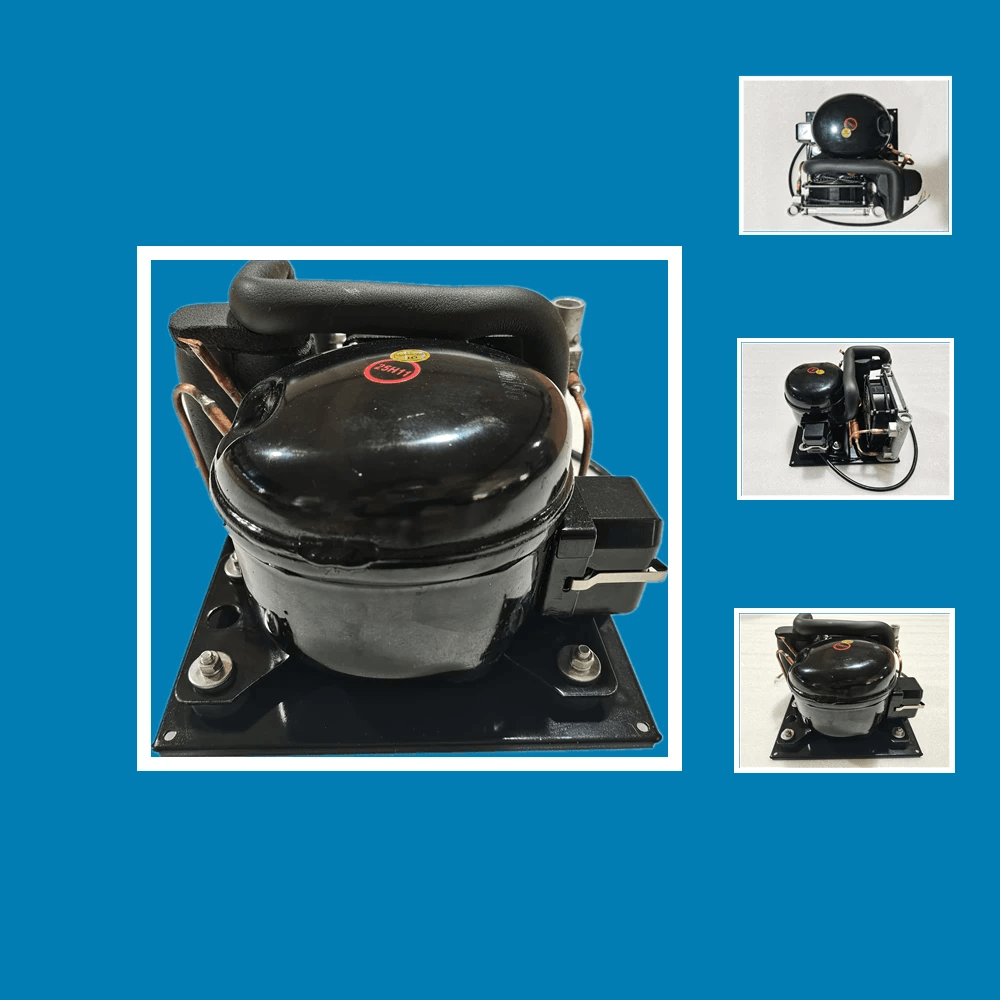
"RIGID is a miniature refrigerated compressor innovation leader in China. We keep looking for novel solutions in compact and portable cooling systems. We capture new technologies in mobile and compact cooling systems."
In the world of laboratory and industrial applications, recirculating chillers play a pivotal role in maintaining optimal temperatures for various processes. These cool water chillers are essential for ensuring that sensitive equipment operates efficiently and safely, making them indispensable in research and development environments. Understanding the importance of a reliable lab chiller can significantly impact productivity and results in scientific endeavors.
Importance of Recirculating Chillers
Recirculating chillers are crucial for providing consistent cooling solutions across diverse applications, from chemical processing to biomedical research. The ability to maintain precise temperature control helps prevent overheating, which can lead to equipment failure or compromised experiments. In essence, these water chillers not only enhance operational efficiency but also extend the lifespan of valuable laboratory equipment.
Key Applications of Cool Water Chillers
Cool water chillers find their place in various settings, including laboratories, manufacturing plants, and medical facilities. They are commonly used to cool lasers, reactors, and other critical systems that generate heat during operation. By providing reliable cooling solutions, recirculating chillers ensure that processes run smoothly without interruptions or risks associated with temperature fluctuations.
Understanding Laboratory Cooling Needs
Every laboratory has unique cooling requirements based on its specific applications and equipment setups. Identifying these needs is vital for selecting the right laboratory cooler that can deliver optimal performance while meeting energy efficiency standards. A thorough understanding of these requirements enables researchers to choose the most suitable recirculating chiller tailored to their operational demands.
What is a Recirculating Chiller?
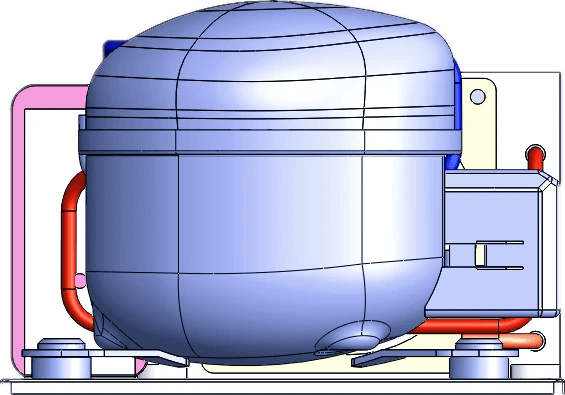
Recirculating chillers are essential devices designed to provide precise cooling for various applications, particularly in laboratories and industrial settings. By circulating a coolant through a closed loop, these water chillers maintain optimal temperatures for equipment and processes. Understanding their functionality is crucial for anyone involved in research or manufacturing that requires reliable temperature control.
Definition and Functionality
A recirculating chiller is a specialized cooling system that removes heat from equipment or processes by circulating chilled water through a closed-loop system. The chiller cools the water using refrigeration technology before it is pumped back to the application needing cooling, ensuring consistent temperature control. This functionality makes lab chillers indispensable for experiments that require stable thermal conditions.
Comparison with Other Chillers
When comparing recirculating chillers to other types of chillers, such as air-cooled or evaporative chillers, their unique benefits become clear. Unlike air-cooled systems that rely on ambient air for cooling, recirculating chillers utilize water to achieve lower temperatures more efficiently and consistently. Additionally, laboratory coolers can be tailored to specific needs, providing advantages over traditional chilling methods in terms of performance and space utilization.
Importance in Research and Industry
Recirculating chillers play a pivotal role in both research laboratories and various industries by ensuring precise temperature management during critical processes. In scientific research, maintaining consistent temperatures can significantly affect experiment outcomes, making these devices vital for success. Furthermore, industries such as pharmaceuticals and electronics rely on laboratory chillers to protect sensitive equipment from overheating while optimizing production efficiency.
Essential Features of Recirculating Chillers
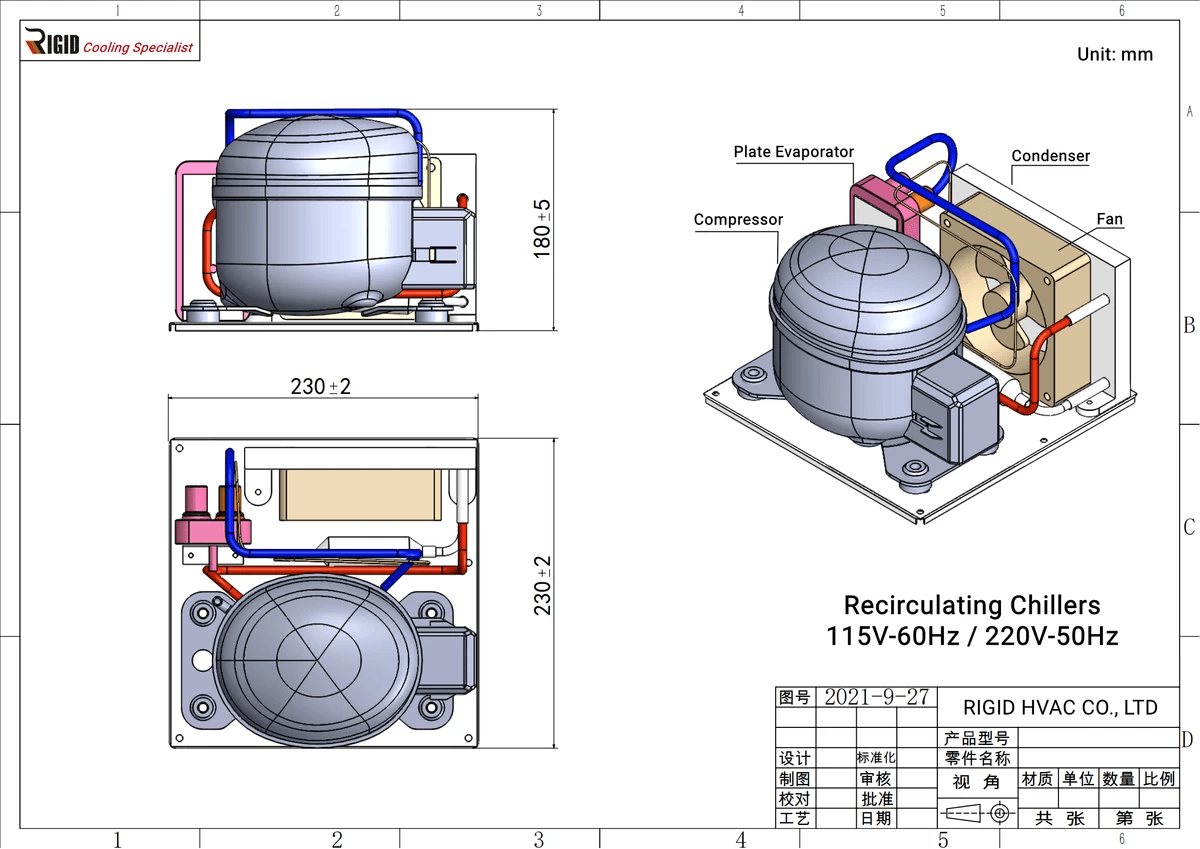
When it comes to selecting the right lab chiller for your laboratory, understanding the essential features of recirculating chillers is crucial. These features ensure that your cool water chiller operates efficiently and meets the specific cooling needs of your experiments or processes. Let’s dive into some key aspects that make a recirculating chiller an invaluable asset in any lab setting.
Temperature Control Accuracy
Temperature control accuracy is paramount in laboratory settings where even slight deviations can lead to significant experimental errors. A high-quality recirculating chiller provides precise temperature regulation, allowing researchers to maintain stable conditions for sensitive materials and processes. This level of accuracy not only enhances the reliability of results but also extends the lifespan of equipment by preventing overheating or thermal shock.
In addition to maintaining consistent temperatures, many modern water chillers come equipped with advanced control systems that allow users to set and monitor temperatures remotely. This feature is particularly beneficial for labs that require constant oversight without being physically present at all times. Ultimately, choosing a laboratory cooler with superior temperature control ensures optimal performance and reliability in research applications.
Flow Rate and Capacity Considerations
Flow rate and capacity are critical factors when selecting a recirculating chiller for your laboratory needs. The flow rate determines how quickly coolant circulates through your system, impacting both cooling efficiency and response time during experiments. An appropriately sized lab chiller should match the demands of your application; too low a flow rate can lead to inadequate cooling, while too high may result in unnecessary energy consumption.
Capacity considerations also play a significant role in ensuring that your cool water chiller can handle peak loads without compromising performance. It’s essential to evaluate both current needs and potential future expansions when assessing capacity requirements for your laboratory cooler. By carefully considering these factors, you can select a recirculating chiller that optimally supports your research activities while minimizing operational costs.
Energy Efficiency and Sustainability
In today’s environmentally conscious world, energy efficiency has become an increasingly important consideration when choosing a recirculating chiller for laboratories. Many manufacturers now design cool water chillers with energy-saving technologies that reduce electricity consumption while maintaining robust cooling performance. Investing in an energy-efficient laboratory cooler not only lowers operating costs but also contributes positively to sustainability efforts within the scientific community.
Additionally, advancements in refrigerants have made modern chillers more environmentally friendly compared to older models that relied on harmful substances. By opting for a state-of-the-art recirculating chiller designed with sustainability in mind, laboratories can significantly decrease their carbon footprint without sacrificing performance quality or reliability. In this way, selecting an energy-efficient lab chiller aligns both practical needs and ethical responsibilities toward our planet's health.
Advantages of RIGID Recirculating Chillers
When it comes to choosing the right laboratory cooler, RIGID recirculating chillers stand out for their innovative technology and practical design. These cool water chillers are engineered to meet the demanding needs of modern laboratories while ensuring high efficiency and reliability. Let’s dive into some key advantages that make RIGID recirculating chillers a top choice for professionals.
Innovative Mini Compressor Technology
At the heart of every RIGID recirculating chiller is its innovative mini compressor technology, which sets it apart from traditional options. This advanced system allows for superior temperature control with minimal energy consumption, making these lab chillers both effective and eco-friendly. By utilizing a compact compressor, RIGID ensures that users can achieve precise cooling without sacrificing performance or increasing energy costs.
Moreover, this mini compressor technology enables rapid cooling responses, crucial for experiments requiring immediate temperature adjustments. Whether you’re working with sensitive samples or large-scale applications, having a reliable cool water chiller can make all the difference in your results. With RIGID’s commitment to innovation, researchers can trust that their laboratory cooler will deliver consistent performance under varying conditions.
Compact Design for Limited Spaces
Space is often at a premium in busy laboratories, making the compact design of RIGID recirculating chillers an invaluable asset. These water chillers are engineered to fit seamlessly into tight areas without compromising on capacity or functionality. Their sleek footprint allows labs to maximize available space while still benefiting from powerful cooling capabilities.
This compactness doesn’t just save space; it also enhances mobility within the lab environment. Users can easily relocate their laboratory chiller as needed, adapting to changing workflows or experimental setups without hassle. The design also lends itself well to integration with other equipment, ensuring that your cooling solutions are both efficient and unobtrusive.
Customization Options for Specific Needs
One of the standout features of RIGID recirculating chillers is their customization options tailored specifically for diverse laboratory needs. Understanding that no two labs are alike, these cool water chillers offer various configurations and features that allow users to select units best suited for their applications. From adjustable temperature ranges to specific flow rates, customization ensures optimal performance regardless of your unique requirements.
Additionally, customers can choose from an array of accessories designed to enhance functionality further—think specialized fittings or enhanced filtration systems tailored for particular tasks within your lab environment. This level of personalization means you’re not just buying a standard lab chiller; you’re investing in a solution crafted around your specific operational demands and challenges. With RIGID’s customizable offerings, every researcher can find the perfect balance between performance and practicality in their cooling solution.
Selecting the Right Laboratory Chiller
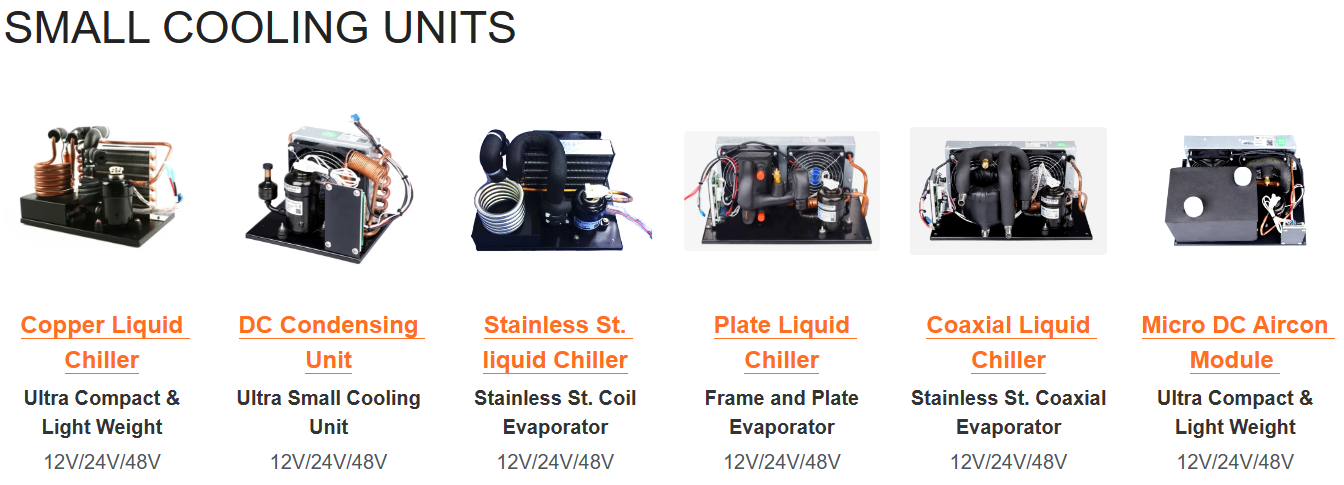
Choosing the right laboratory chiller can feel like finding a needle in a haystack, especially with the plethora of options available. However, understanding your specific needs and the capabilities of various models will guide you toward the perfect recirculating chiller for your lab. From assessing cooling requirements to evaluating brands and considering maintenance, this process is critical for ensuring optimal performance in your experiments.
Assessing Cooling Requirements
Before diving into the world of cool water chillers, it’s essential to assess your cooling requirements thoroughly. Different applications demand varying levels of cooling efficiency and temperature control; thus, knowing your specific needs will help narrow down your options. Factors such as desired temperature range, flow rate, and capacity should be considered to ensure that you select a lab chiller that meets your operational demands.
When evaluating these criteria, think about how often you’ll need to operate the recirculating chiller and under what conditions it will function. If you're working with sensitive materials or processes requiring precise temperature regulation, investing in a high-performance laboratory cooler might be necessary. Remember that an appropriate match between your cooling needs and chosen model can significantly enhance productivity and reduce energy costs.
Evaluating Brands and Models
With an understanding of your requirements in hand, it’s time to evaluate different brands and models of recirculating chillers on the market. Not all water chillers are created equal; some may excel in energy efficiency while others might offer superior temperature control or compact designs suitable for limited spaces. Researching reputable manufacturers known for their quality products can save you from potential headaches down the line.
Look for customer reviews and testimonials that highlight real-world experiences with specific lab chillers or cool water chillers to gauge their reliability and performance firsthand. Additionally, consider whether certain brands provide customization options tailored to unique laboratory setups or processes—this could make all the difference in achieving optimal results with your equipment. Taking time to evaluate various options ensures that you invest wisely in a reliable laboratory chiller.
Considering Maintenance and Support
Even after selecting a suitable recirculating chiller model, maintenance plays a pivotal role in its longevity and performance efficiency over time. It’s crucial to consider what kind of maintenance support is offered by manufacturers when making your choice; some brands may provide comprehensive service plans while others leave you high-and-dry after purchase! A robust support system can make routine maintenance easier so that any issues are resolved swiftly without hindering lab operations.
Regular upkeep not only keeps your cool water chiller running smoothly but also minimizes unexpected breakdowns—saving both time and money for busy labs! Additionally, inquire about warranty coverage as this adds another layer of protection against potential malfunctions during operation periods when reliability is paramount. Ultimately, choosing a brand committed to excellent customer service ensures peace of mind as you navigate through everyday challenges associated with running sophisticated laboratory equipment.
Best Practices for Lab Cooler Usage

When it comes to keeping your laboratory equipment running smoothly, understanding best practices for using a recirculating chiller is essential. A well-maintained lab chiller not only ensures optimal cooling performance but also extends the lifespan of your equipment. By following some straightforward guidelines, you can maximize the efficiency of your cool water chiller.
Regular Maintenance Tips
Regular maintenance is crucial for any recirculating chiller to function at its best. Start by checking and replacing filters as needed; dirty filters can impede airflow and reduce cooling efficiency in your laboratory cooler. Additionally, inspect the coolant levels and ensure there are no leaks in the system—these small tasks can prevent major headaches down the line.
Another key aspect of maintenance is cleaning the condenser coils regularly; dust and debris can accumulate and hinder heat exchange, impacting performance. Make sure to schedule routine professional servicing to catch any underlying issues that may not be immediately visible. Keeping a maintenance log will help you track service intervals and identify patterns that might suggest larger problems with your water chiller.
Monitoring Performance
Monitoring the performance of your recirculating chillers is vital to maintaining their effectiveness in a lab setting. Utilize temperature monitoring systems to ensure that your lab chiller maintains consistent temperatures within specified parameters; fluctuations can indicate issues that require immediate attention. Regularly check flow rates as well—low flow could signal blockages or pump problems.
Implementing an alarm system for temperature deviations or system failures can provide peace of mind while ensuring prompt action when something goes awry with your cool water chiller. Don't forget about energy consumption; tracking this data helps identify inefficiencies that could lead to higher operational costs over time. By staying on top of these performance metrics, you'll keep your laboratory cooler running like a well-oiled machine.
Troubleshooting Common Issues
Even with diligent maintenance, issues may arise with your recirculating chillers from time to time—knowing how to troubleshoot them can save you both time and money. One common problem is insufficient cooling; if this occurs, first check for clogs in hoses or filters that might restrict coolant flow through the lab chiller system. If everything appears clear but temperatures remain high, it might be time to evaluate whether there’s an issue with the compressor or refrigerant levels.
Another frequent issue involves unusual noises coming from the unit; these sounds could indicate mechanical problems or loose components within your water chiller setup. If you encounter persistent error codes on digital displays, consult the user manual for guidance on specific messages related to your model's operation—this often provides insight into what needs fixing without requiring professional help right away. Taking proactive steps in troubleshooting ensures minimal downtime and keeps experiments moving forward smoothly.
Conclusion
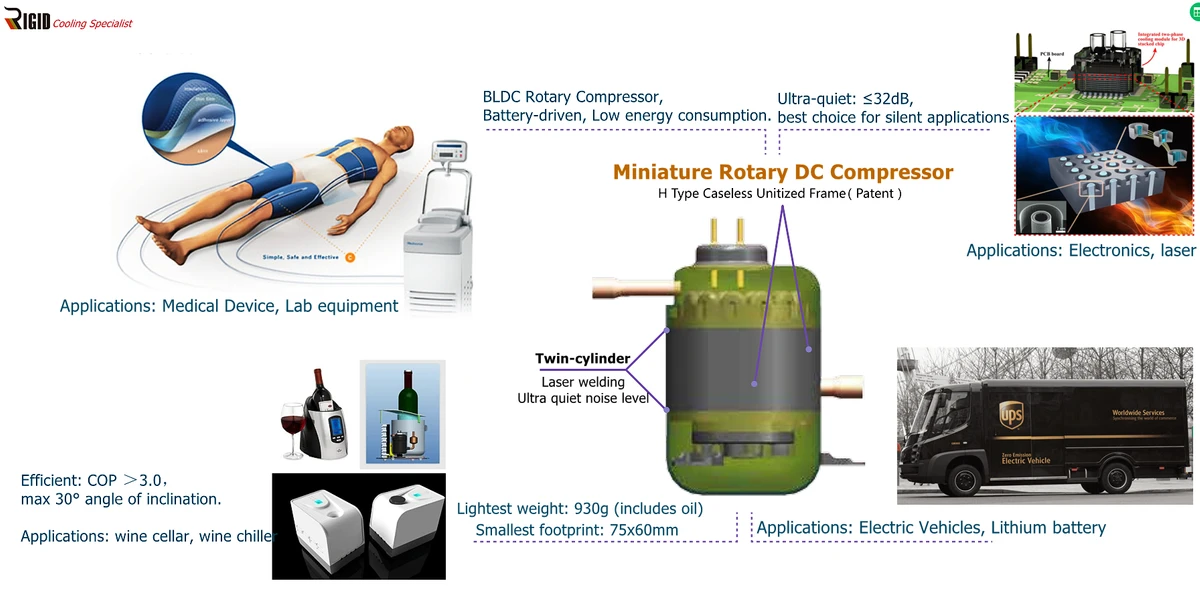
In the grand scheme of laboratory operations, recirculating chillers play a pivotal role in ensuring optimal performance and efficiency. These cool water chillers are not just accessories; they are essential components that help maintain precise temperature control, crucial for sensitive experiments and processes. By investing in a quality lab chiller, research facilities can enhance productivity and safeguard their valuable equipment.
Recirculating Chillers Make a Difference
The impact of recirculating chillers on laboratory environments cannot be overstated. They provide consistent cooling, which is vital for preventing overheating in sensitive applications such as chemical reactions or biological studies. With their ability to manage temperature fluctuations effectively, these water chillers contribute significantly to the reliability and accuracy of experimental results.
RIGID's Role in Modern Cooling Solutions
RIGID has emerged as a leader in the manufacturing of innovative recirculating chillers tailored for modern laboratory needs. Their advanced technology ensures efficient cooling while minimizing energy consumption, making them an environmentally friendly choice for researchers and industries alike. With features like compact designs and customizable options, RIGID’s cool water chillers are designed to fit seamlessly into any lab setup.
Choosing the Right Partner for Cooling Needs
Selecting the right partner for your laboratory cooler requirements is crucial for long-term success. It’s important to evaluate brands based on performance history, customer support, and maintenance services offered alongside their products. By choosing a reputable manufacturer like RIGID, laboratories can ensure they receive not only high-quality recirculating chillers but also ongoing support that keeps their operations running smoothly.